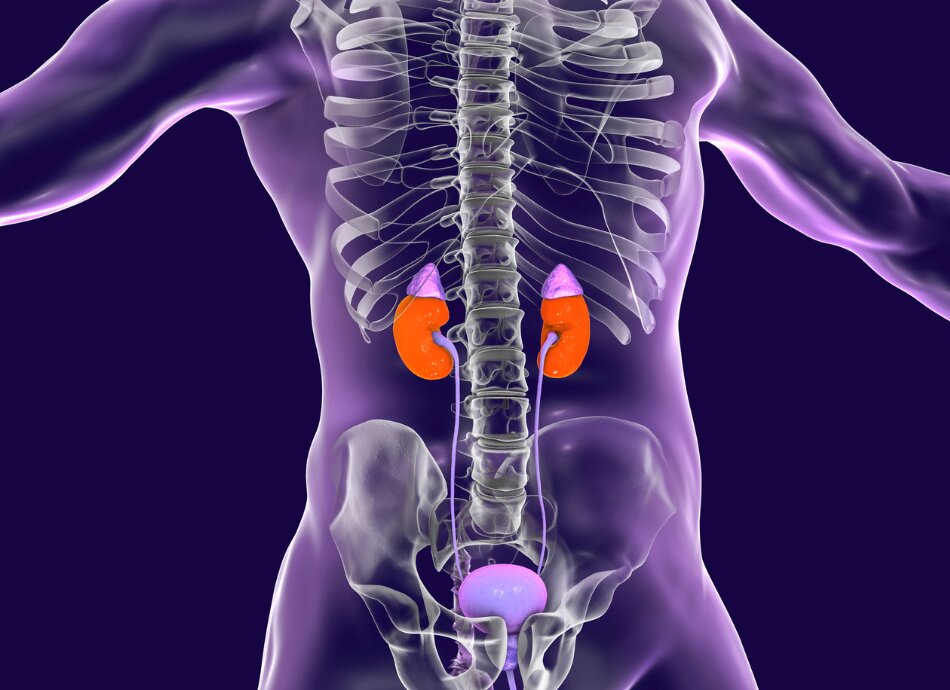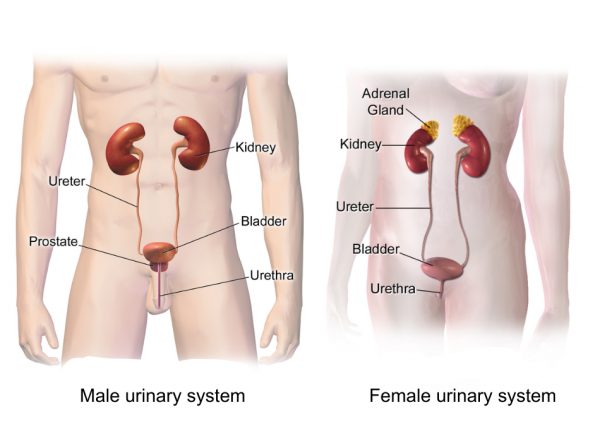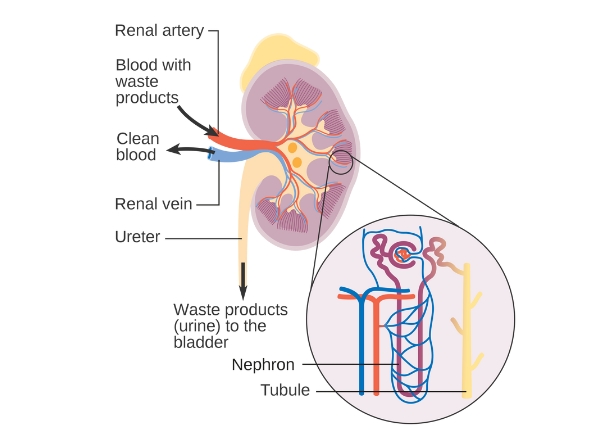Video: Almost everything you need to know about your kidneys
This video may take a few moments to load.
(Kidney Quality Improvement Partnership, 2016)


This video may take a few moments to load.
Your kidneys are 2 bean-shaped organs, each about the size of a fist. They sit just below your rib cage, one on each side of your spine.
Their main function is to remove waste products and excess fluid. Your blood supply circulates through your kidneys about 12 times every hour. As it goes through your kidneys, it's filtered to remove waste.
The kidneys turn this waste and excess fluid into urine (pee). Each day your kidneys process about 200 litres of blood.

Image credit: BruceBlaus via Wikimedia Commons(external link)
The kidneys are powerful chemical factories that:
Each kidney is made up of about a million filtering units called nephrons. Each nephron filters a small amount of blood. The nephron includes a filter, called the glomerulus, and a tubule.
The nephrons work through a two-step process. The glomerulus lets fluid and waste products pass through it, but prevents blood cells and large molecules, mostly proteins, from passing.
The filtered fluid then passes through the tubule (proximal and distal), which sends needed minerals back to your bloodstream and removes wastes. The final product becomes urine (pee).

Image credit: Cancer Research UK via Wikimedia Commons(external link)
Recent research has discovered a new way that kidneys renew themselves. This helps explain why kidneys can remain healthy for a lifetime, as long as they're not damaged by injury or disease. Further research and understanding of this process may mean that, in the future, health professionals will be able to keep kidneys healthy in people with high blood pressure or diabetes.
A healthy kidney can greatly increase its work capacity. With 2 healthy kidneys, each one performs 50% of the normal kidney function. If 1 kidney is lost, the other kidney can enlarge and provide up to 75% of the normal kidney function (the work of 1.5 normally functioning kidneys).
Because of their vital role in keeping your body functioning, it's important to take care of your kidneys. If you don't protect them, you may be at risk of acute kidney injury or chronic kidney disease.
The main ways you can do this are to:
Read more about how to protect your kidneys.
This video may take a few moments to load.
(World Kidney Day, 2018)
What your kidneys do(external link) HealthEd, NZ, 2023
Credits: Healthify editorial team. Healthify is brought to you by Health Navigator Charitable Trust.
Reviewed by: Dr Sharon Kletchko, Principal Advisor – Horizon Scanning, Service Improvement and Innovation Directorate, Health New Zealand | Te Whatu Ora
Last reviewed: